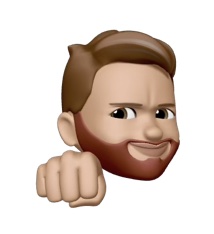by Hudson Moura
Bong Joon-ho returns with Mickey 17, a sci-fi epic that ambitiously explores the disposability of human life in a future where technology dictates existence. Adapted from Edward Ashton’s novel Mickey7, the film unfolds in 2054, presenting a dystopian world ruled by corporate control, ideological purity, and the illusion of progress. While Bong remains a master of genre-blending and social critique, Mickey 17 struggles to balance its philosophical weight with engaging storytelling. Unlike Parasite (2019), which seamlessly deconstructed social class conflict through gripping tension, Mickey 17 falls into a visual and narrative rut. However, its environmental concerns align it more closely with Okja (2017), which challenged the ethics of biotechnology and explored the clash between nature and technology.
Mickey 17 lacks originality in its sci-fi aesthetics, its alien creatures feel derivative, and its thought-provoking themes often succumb to predictable storytelling. Despite strong performances, particularly from Robert Pattinson and the unsettling duo of Mark Ruffalo and Toni Collette, Bong’s latest venture raises critical questions about labor, technology, and identity but struggles to sustain momentum, leaving it conceptually compelling yet frustratingly underwhelming.
A Human Copy on Repeat
The story follows Mickey 17 (Robert Pattinson), a low-ranking “Expendable” aboard a space colonization mission. His sole purpose? To die repeatedly. As the ship’s designated guinea pig, he endures lethal experiments, brutal conditions, and risky excursions so the rest of the crew can survive. Each time he perishes, his consciousness is transferred into a freshly printed body, his memory intact but his autonomy questioned. It’s a process that turns human life into a mere function, a renewable resource in service of corporate and ideological ambitions.
The film opens with an intense sequence—Mickey 17 on the verge of death, surrounded by Creepers, the supposed alien threat of this distant planet. However, as the narrative unfolds, the true antagonists become clear: not the alien species but the human systems of control that dictate existence. The colony operates under the iron grip of an authority that fuses religion and corporation into a singular force, where purity—of race, society, and even the planet itself—is the ultimate goal. The chilling rhetoric of “Pure Planet” reflects a totalitarian utopia, where technology is wielded not for progress but for absolute control.
The Illusion of Free Will
The philosophical heart of Mickey 17 lies in its exploration of identity and agency. Mickey, unlike the others, begins to question his existence. What does it mean to die if one always comes back? How much of him is truly him? As his memories grow stronger with each resurrection, his individuality, rather than diminishing, becomes more pronounced. This creates a crisis—if a person can be replicated indefinitely, are they still a person, or just a tool?
Pattinson delivers a nuanced performance, capturing Mickey’s existential dread and defiant humor. His journey, told in first-person perspective, immerses the audience in his growing realization that he is not just a cog in the machine—he is the machine, designed to serve but yearning for meaning beyond mere survival. The constant questioning—“What is it like to die?”—from his fellow pioneers reinforces the unsettling truth: for them, his suffering is mere curiosity, a spectacle rather than a tragedy.
Technology as Religion
Bong Joon-ho intertwines technological and theological motifs, portraying a world where scientific advancements are no longer just tools but sacred doctrines. The colony’s governing body, a hybrid of corporate enterprise and religious dogma, manipulates the idea of progress to enforce submission. The film critiques the blind faith placed in technological salvation, where human lives are sacrificed for a “greater” future dictated by those in power.
This thematic core aligns Mickey 17 with Bong’s previous explorations of nature versus technology. In Okja, genetic engineering and corporate greed clash with environmentalism, while in Snowpiercer, survival is structured within an artificial ecosystem controlled by an elite class. Here, Bong escalates the stakes—technology has transcended mere utility and become the divine, dictating who lives, who dies, and who is worthy of memory.
While Mickey 17 is a far cry from Parasite in tone and genre, it maintains Bong’s sharp critique of social structures. The film’s narrative, which initially seems centered on an alien threat, gradually reveals itself to be a reflection of human oppression. The “Creepers,” rather than being monstrous invaders, exist in peaceful harmony with their environment—a stark contrast to the humans who bring hierarchy, labor exploitation, and technological dogma. The real question isn’t whether humans can survive on this planet, but whether they deserve to.
A Dystopian Concept That Falls Short Visually
Mickey 17 presents a compelling premise—a dystopian allegory where human labor is infinitely replaceable, where life is reduced to utility, and where individuality is merely a memory stored for convenience. Bong Joon-ho uses science fiction not as escapism, but as a magnifying lens, exaggerating the idea of a disposable workforce to confront audiences with a chilling reflection of our own reality. It’s a bold concept, rooted in class critique and existential unease.
However, while the film’s ideas are timely and thought-provoking, its execution falters in key areas. Visually, Mickey 17lacks the innovation that has defined Bong’s best work. The Creepers—supposedly the alien “threat”—feel derivative, evoking creatures from countless other sci-fi films without offering a fresh visual or symbolic take. The design of the colony and its technological world, while functional, rarely stuns or surprises.
Performance-wise, the cast delivers. Robert Pattinson anchors the film with his brooding introspection, and the standout dynamic between Mark Ruffalo and Toni Collette—playing a charismatic and unsettling missionary/CEO couple—adds tension and humor. Yet the narrative itself often slips into familiar tropes, with long stretches that feel predictable or emotionally flat.
Verdict:
Despite its high-concept foundation, Mickey 17 struggles to sustain narrative momentum or deepen its central conflict in an original way. It flirts with philosophical grandeur but often settles for cliché. In the end, while the film succeeds in posing essential questions about humanity, labor, and identity, it does not always succeed in holding our attention.
 3/5
3/5